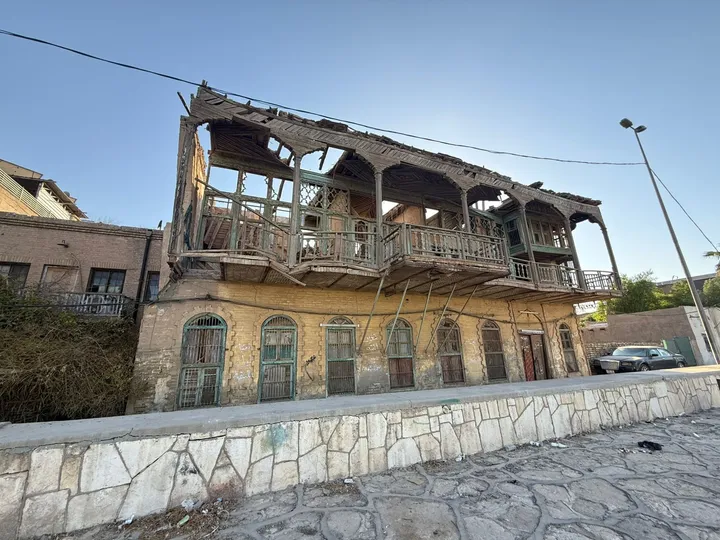The Legend of the Thousand Bulls (Binbogalar Efsanesi), the famous novel by the deceased Turkish novelist Yasar Kemal in 1971, has been adapted into a musical, which premiered at the 51st Istanbul Music Festival on June 17.
Kemal’s words have been turned into a cosmos of sounds and beats by a group of musicians including Michael Ellison, an American, and Ulrich Mertin, who is a German.
"His (Kemal’s) work opens up an immensely creative space, so you feel free," says Ellison, who has read almost all the works of the Turkish novelist since a friend introduced him to Kemal’s novels.
“His perspective is totally different from the others.”
Ellison and Mertin, have lived in Istanbul for over a decade. They spoke to TRT World about their passion for traditional Turkish folk music and their journey of composing the musical theatre.
They shared a common dream and came up with the idea of founding the Hezarfen Ensemble, an Istanbul-based music band that introduces contemporary melodies into Istanbul's diverse musical scene, in 2010 after they ran into each other for the first time in Istanbul. Over the years, the ensemble has aspired to make more transcultural music in collaboration with traditional instrumentalists. Michael and Ulrich want to introduce Türkiye’s rich culture to a broader audience as part of their effort to increase cultural encounters. "I am German, and he is American, but we're sharing a passion for Türkiye," Ulrich says. "Türkiye can be seen as a pool of creativity with its history, art, and music.” He thinks the country's enriched cultural landscape, which sparks the creativity of artists from other countries, must be well-introduced to the outside world. "With our work, we give sonic impulses to fill that gap."
'Above and beyond'
The Hezarfen Ensemble launched a contemporary music project called "Beyond East and West" in 2015. The project, funded by the European Research Council (ERC) between 2015-2020, aims to foster collaboration between musicians of maqam, the system of melodic modes in Eastern music, and the creation of innovative transcultural ensemble compositions.
Under Ellison’s leadership, the project, has been incorporating traditional Turkish instruments and vocal styles into contemporary music.
Ellison explains how they intentionally left the definition for the project open-ended. "There shouldn't be one formula. If you have musicians working creatively for different musical traditions, all kinds of things could come out of this work," he says.
Within the scope of "Beyond East and West", various performances, workshops, conferences, and lectures have been held in Istanbul and Germany.
The project provided opportunities for aspiring musicians and individuals interested in expanding their artistic skills and knowledge of Turkish musical traditions through educational sessions.
Instances from southern Anatolia's oral traditions such as deyis and bozlak, religious musical circles such as Mevlevi Ayini ceremonies, Turkish folk music workshops with traditional instruments such as kemence, kanun, ney; were some of the elements that helped the participants of the project achieve a broader view of the fusion between the two cultures.
For the ensemble, it’s not about making music of East or West but above and beyond all the divisions. Ellison says it’s about "drawing from multiple traditions and having creativity coming out of all."
The ensemble says they have used their music to highlight the works of Turkish artists. “This needs to be done because Türkiye is so rich in art and creativity. And often, people outside of the country don’t know that,” says Ulrich.
Binbogalar Efsanesi
Yasar Kemal has inspired Ellison to compose a musical before. In 2016 "The Sea-Crossed Fisherman" (Deniz Kustu), another novel by Yasar Kemal, was brought to the stage by Ellison at an opera.
However, "Binbogalar Efsanesi is the peak of our development," Ulrich says. "Because it's very organic," Michael adds.
The story in "The Legend of the Thousand Bulls" revolves around the last remaining nomadic Yoruk tribes in the Cukurova region of southeastern Türkiye, whose thousand-year-old rural lives were torn apart by modernisation and sedentary lifestyles. The musical theatre is inspired by the region's traditional bozlak music.
The literary genius of Kemal, accompanied by his successful sociological and anthropological observations, provides both the artists and the audience who get to hear a musical version of his works with a better understanding of the geography and culture of Türkiye.
The project team aims to ignite a growing curiosity within their audience about Anatolian culture, even if they come from familiar backgrounds. They want the audience to leave the venue with a heightened interest and desire to explore these facets further.
"I would like to see people leave our show saying 'Wow, I knew bozlak and all these, but they are presented so differently, with different connotations.' And to say 'there seems to be more (meaning),'" tells Ulrich.
He believes that seeing cultural elements placed in different contexts than ever before will open up new doors, for those who will see the play, towards their own culture.
"People should be proud and curious about the elements that constitute Turkish culture. This is one of our aims with Hezarfen's work," he says.
























